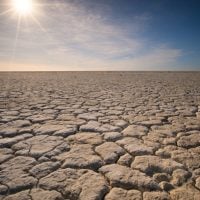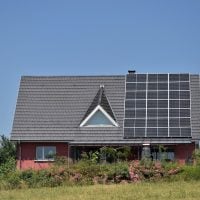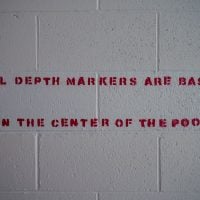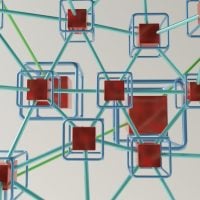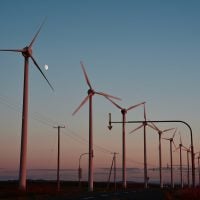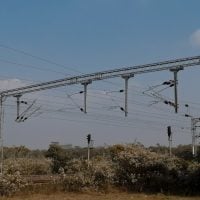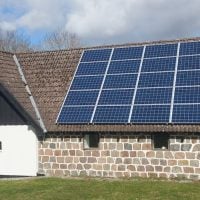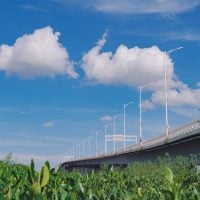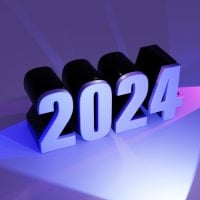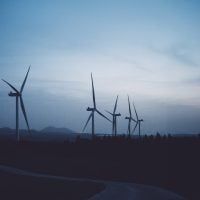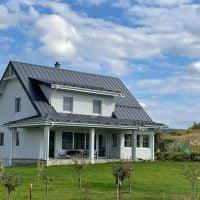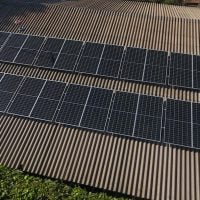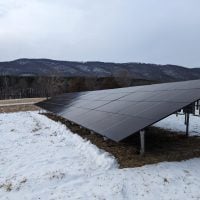Deadline: 30-May-24
The U.S. Department of State, Bureau of Democracy, Human Rights, and Labor (DRL) announces an open competition for organizations to support civil society in the Western Balkans to hold governments accountable and transparent by promoting greater public participation with a focus on environmental issues.
The United Nations Environmental Programme held a Western Balkans Forum in late 2022 that concluded the region is heavily impacted by climate and pollution issues. Corruption and inconsistent implementation of regulations further exacerbate the situation. These environmental issues may be highly detrimental to communities in these countries, impacting the health of individuals and putting their rights to safe living conditions and access to natural resources at risk. For instance, a 2022 study from the Belgrade Centre for Security Policy cited instances of increased pollution in regions proximate to new development projects, which degraded air quality and local water sources, causing potential health risks to local communities including respiratory infections and autoimmune diseases. Activists have recounted how local politicians use fear of economic crisis to demotivate citizens from speaking out against industrial pollution. The lack of local good governance in tackling environmental challenges has catalyzed public discontent and distrust.
To address some of these issues and leverage civil society’s activism, DRL/GP is seeking proposals that promote greater public participation and ensure government transparency and accountability. The project will focus on environmental governance processes in Western Balkan countries with high levels of international economic influence. The program aims to: (1) support local communities and/or organizations to mobilize to advance good governance principles and their intersection with local environmental laws and regulations; (2) engage independent media and community members in monitoring and documenting cases of non-compliance with environmental policies; and (3) create a diverse network of reform advocates collaborating to build accountability for implementing current laws and development of rights-respecting policies.
DRL requires all programs to be non-discriminatory and expects implementers to include strategies for nondiscrimination of individuals/organizations/beneficiaries based on race, color, religion, sex, gender identity, gender expression, sex characteristics, sexual orientation, pregnancy, national origin, disability, age, genetic information, marital status, parental status, political affiliation, or veteran’s status. Where appropriate, competitive proposals may include:
- Opportunities for beneficiaries to apply their new knowledge and skills in practical efforts;
- Solicitation of feedback and suggestions from beneficiaries when developing activities in order to strengthen the sustainability of programs and participant ownership of project outcomes;
- Input from participants on sustainability plans and systematic review of the plans throughout the life of the project, with adjustments made as necessary;
- Inclusion of vulnerable populations;
- Joint identification and definition of key concepts with relevant stakeholders and stakeholder input into project activities.
Funding Information
- Total Funding Ceiling: $986,679 FY23 AEECA
- Total Funding Floor: $986,679 FY23 AEECA
- Anticipated Number of Awards: 1
- Period of Performance: 12-24 months
Ineligible Funding Activities
- Activities that are not typically allowed include, but are not limited to:
- The provision of humanitarian assistance;
- English language instruction;
- Development of high-tech computer or communications software and/or hardware;
- Purely academic exchanges or fellowships;
- External exchanges or fellowships lasting longer than six months;
- Off-shore activities that are not clearly linked to in-country initiatives and impact or are not necessary per security concerns;
- Theoretical explorations of human rights or democracy issues, including projects aimed primarily at research and evaluation that do not incorporate training or capacity-building for local civil society;
- Micro-loans or similar small business development initiatives;
- Initiatives directed towards a diaspora community rather than current residents of targeted countries.
Expected Outcomes
- Civic engagement and advocacy in local communities is increased to influence environmental law, regulations, and policies.
- Civil society and media organizations are better able to document cases of environmental harm and conduct evidence-based advocacy on key environmental issues, including changes to ineffective environmental policies.
- Environmental governance reform advocates are better equipped to network, build trust, and leverage strategic communication.
- Civil society builds trusts and networks within their communities on issues of environmental governance abuse, with a focus on highlighting the experiences of marginalized communities.
- A robust independent media network of watchdogs accurately documents cases of non-compliance with environmental policies to counter disinformation and misinformation regarding environmental governance in the region.
- Civil society and media organizations develop capacity and professionalism to reduce vulnerability to misinformation and disinformation.
- Environmental governance advocates collaborate with allies in government to promote evidence-based environmental policy reform.
- Greater awareness of the causes and impacts of environmental damage drives increased demand for improved environmental governance.
- Greater awareness of existing accountability mechanisms and increased support for enforcement of regulations
Eligibility Criteria
- Eligible Applicants
- DRL welcomes applications from U.S.-based and foreign-based non-profit organizations/nongovernmental organizations (NGO) and public international organizations; private, public, or state institutions of higher education; and for-profit organizations or businesses. DRL’s preference is to work with non-profit entities; however, there may be some occasions when a for-profit entity is best suited.
- Applications submitted by for-profit entities may be subject to additional review following the panel selection process. Additionally, the Department of State prohibits profit to for-profit or commercial organizations under its assistance awards. Profit is defined as any amount in excess of allowable direct and indirect costs.
- Other
- Applicants should have existing, or the capacity to develop, active partnerships with thematic or in-country partners, entities, and relevant stakeholders, including private sector partners and NGOs, and have demonstrable experience in administering successful and preferably similar projects. DRL encourages applications from foreign-based NGOs headquartered in the geographic regions/countries relevant to this NOFO. Applicants may form consortia in order to bring together organizations with varied expertise to propose a comprehensive program in one proposal. However, one organization should be designated in the proposal as the lead applicant, with the other members designated as sub-award partners. DRL reserves the right to request additional background information on applicants that do not have previous experience administering federal grant awards, and these applicants may be subject to limited funding on a pilot basis.
- DRL welcomes applications irrespective of race, ethnicity, color, creed, national origin, gender, sexual orientation, gender identity, disability, or other status. DRL seeks applications that demonstrate that the recipient does not discriminate against any beneficiaries in implementation of a potential award, such as, but not limited to, by withholding, adversely impacting, or denying equitable access to the benefits provided through this award on the basis of any factor not expressly stated in the award.
For more information, visit Bureau of Democracy, Human Rights, and Labor (DRL).

